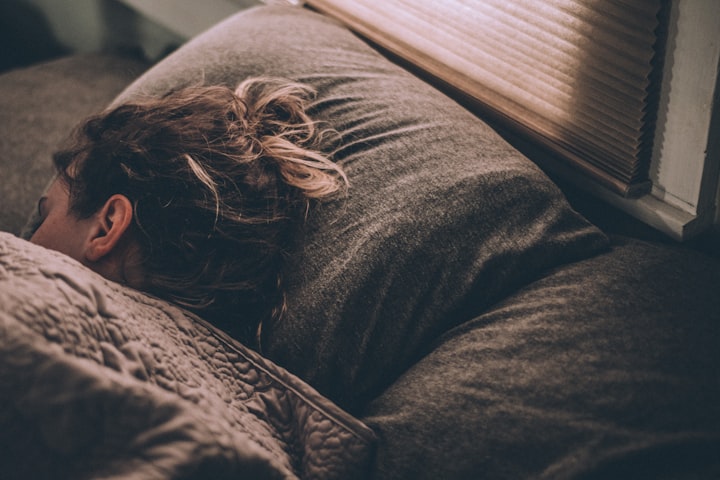5 Essential Habits for Healthy Sleep
All of us spend the day being conscious and aware and spend the night being seemingly unconscious and unaware. This rhythm of rest and activity pervades nature and affects every creature. But human beings are unique, because only we use sleep to restore body, mind, and spirit.

However, modern life works against sleep and its restorative powers. Around 30 percent of Americans get less than 7 hours of sleep per night, and among single mothers, this rises to 47 percent. The negative side of sleep disorders has gotten the most study, but let’s focus on the positive side: the benefits derived from 7 to 9 hours of good sleep. Good sleep is uninterrupted; you sleep through the entire night. It isn’t restless, and there are extended periods of REM or dream sleep.
The benefits begin with sharp mental functioning throughout the day, abundant energy, freshness, positive moods, and consistent alertness without stretches of fatigue and dullness. Good sleep is connected via hormonal rhythms to regulated appetite, while poor sleep is associated with lack of impulse control and weight gain.
We’ve known that this process occurs when we sleep to clear away the neurological wear and tear of the day, but now it appears that the same thing happens when we start to lose sleep.
But rather than being a good thing, the brain goes overboard with the clearing, and starts to harm itself instead.
Think of it like the garbage being cleared out while you’re asleep, versus someone coming into your house after several sleepless nights and indiscriminately tossing out your television, fridge, and family dog.
“We show for the first time that portions of synapses are literally eaten by astrocytes because of sleep loss,” Bellesi told Andy Coghlan at New Scientist.
To figure this out, the researchers imaged the brains of four groups of mice:
one group was left to sleep for 6 to 8 hours (well-rested)
another was periodically woken up from sleep (spontaneously awake)
a third group was kept awake for an extra 8 hours (sleep-deprived)
and a final group was kept awake for five days straight (chronically sleep-deprived).
When the researchers compared the activity of the astrocytes across the four groups, they identified it in 5.7 percent of the synapses in the well-rested mouse brains, and 7.3 of the spontaneously awake mouse brains.
In the sleep-deprived and chronically sleep-deprived mice, they noticed something different: the astrocytes had increased their activity to actually eating parts of the synapses like microglial cells eat waste — a process known as astrocytic phagocytosis.
In the sleep-deprived mouse brains, the astrocytes were found to be active across 8.4 percent of the synapses, and in the chronically sleep-deprived mice, a whopping 13.5 percent of their synapses showed astrocyte activity.
As Bellesi told New Scientist, most of the synapses that were getting eaten in the two groups of sleep-deprived mice were the largest ones, which tend to be the oldest and most heavily used — “like old pieces of furniture” — which is probably a good thing.
But when the team checked the activity of the microglial cells across the four groups, they found that it had also ramped up in the chronically sleep-deprived group.
And that’s a worry, because unbridled microglial activity has been linked to brain diseases like Alzheimer’s and other forms of neurodegeneration.
“We find that astrocytic phagocytosis, mainly of presynaptic elements in large synapses, occurs after both acute and chronic sleep loss, but not after spontaneous wake, suggesting that it may promote the housekeeping and recycling of worn components of heavily used, strong synapses,” the researchers report.
“By contrast, only chronic sleep loss activates microglia cells and promotes their phagocytic activity … suggesting that extended sleep disruption may prime microglia and perhaps predispose the brain to other forms of insult.”
Many questions remain, such as if this process is replicated in human brains, and if catching up on sleep can reverse the damage.
But the fact that Alzheimer’s deaths have increased by an incredible 50 percent since 1999, together with the struggle that many of us have in getting a good night’s sleep, means this is something we need to get to the bottom of - and fast.
Positive Habits for Restful Sleep
To bring you these benefits, here are five positive lifestyle changes you can adopt as new habits. Each conforms to Ayurvedic principles and modern sleep research:
Set your bedroom aside as a room for sleeping, not texting, reading, or watching TV. Go to sleep at the same time every night. Make your bedroom as dark and silent as possible. Stop major mental activity, such as work you brought home with you, two hours before bedtime. Curtail eating two hours before bedtime.
These seemingly simple practices, which many people would overlook or focus on intermittently, work together in a powerful way. You are changing the feedback loop that connects mind and body. Instead of sending mixed signals, you are conveying one unified message: relax. If this message is backed up by regular intention every night, pathways in the brain associated with biorhythms will begin to fall into their natural pattern of rest and activity.
“Relax” means lowering external stimulation like light and sound in the bedroom. It means easing the thinking process so that the hypothalamus, which is a brain region critical for regulating many bodily rhythms, is allowed to be heard, chemically speaking. Relax also refers to the gut-brain feedback loop. By not eating two hours before bedtime, your digestive tract tells the brain that extra energy an activity doesn’t have to be fired up. But at the same time, the brain realizes that it doesn’t need the extra energy produced by digestion.
This whole interrelated feedback sets the stage for the body-mind system to let sleep happen as naturally as possible. Such changes are much more preferable than over-the-counter or prescription sleep aids, which force an unnatural state of sleep and actually take the brain in the opposite direction you want to go. Try these changes for yourself, adding a simple Ayurvedic daily regime that balances your doshas as comfortably as possible. The results will benefit you for the rest of your life.
References: Demi Powell on CS - https://corespirit.com/articles/5-crucial-habits-for-restful-sleep-hyhqsj2yho
About the Creator
Enjoyed the story? Support the Creator.
Subscribe for free to receive all their stories in your feed. You could also pledge your support or give them a one-off tip, letting them know you appreciate their work.





Comments
There are no comments for this story
Be the first to respond and start the conversation.